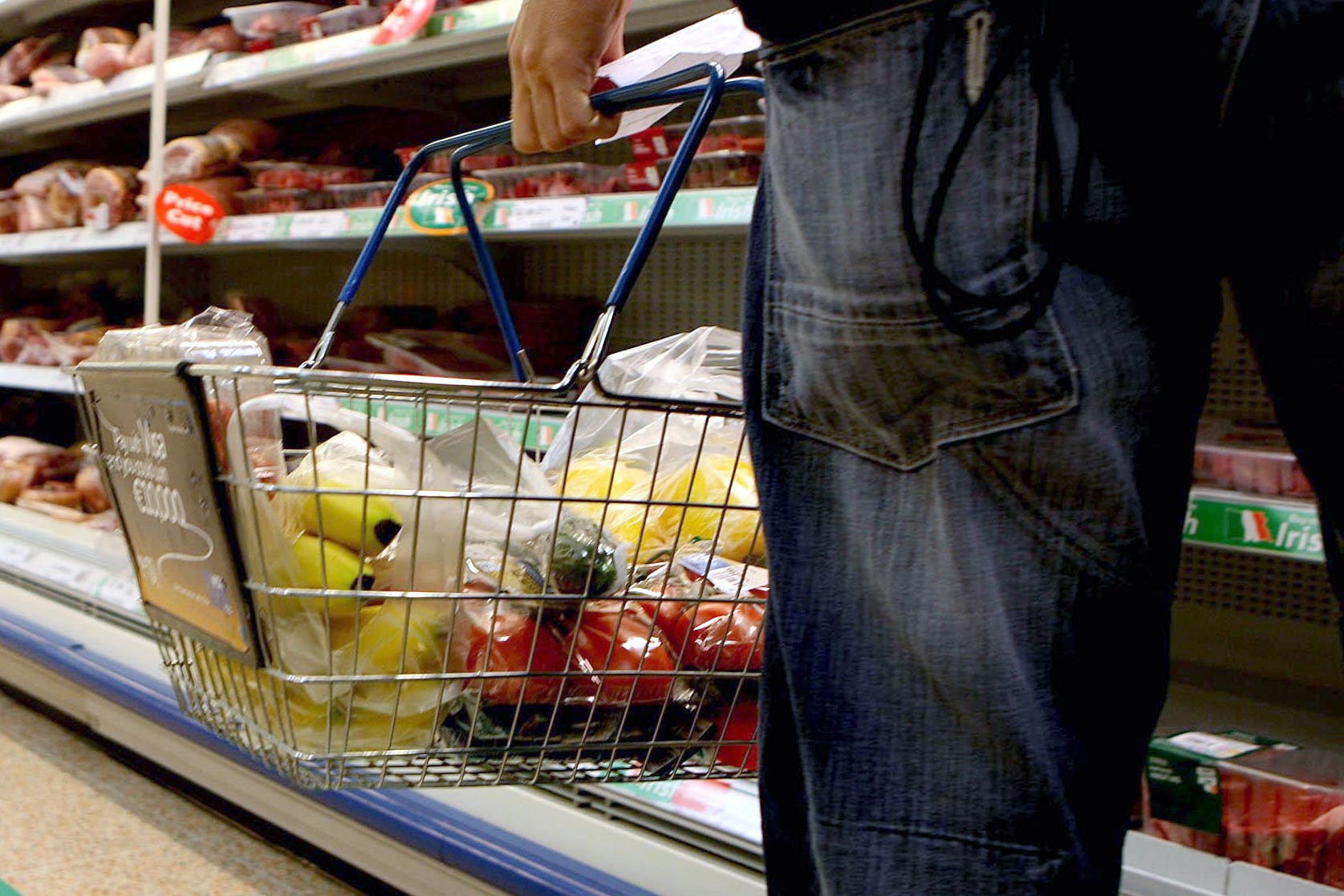Grocery price inflation falls to lowest level in a year
Some 95% of consumers are still worried about the impact of rising grocery prices, analysts Kantar found.

Your support helps us to tell the story
From reproductive rights to climate change to Big Tech, The Independent is on the ground when the story is developing. Whether it's investigating the financials of Elon Musk's pro-Trump PAC or producing our latest documentary, 'The A Word', which shines a light on the American women fighting for reproductive rights, we know how important it is to parse out the facts from the messaging.
At such a critical moment in US history, we need reporters on the ground. Your donation allows us to keep sending journalists to speak to both sides of the story.
The Independent is trusted by Americans across the entire political spectrum. And unlike many other quality news outlets, we choose not to lock Americans out of our reporting and analysis with paywalls. We believe quality journalism should be available to everyone, paid for by those who can afford it.
Your support makes all the difference.Grocery price inflation has dropped to its lowest level in more than a year – but 95% of consumers remain concerned about rising supermarket bills, figures show.
Prices across grocers were 12.2% higher than a year ago for the four weeks to September 3, down from the previous month’s 12.7%, analysts Kantar said.
It is the sixth consecutive decline in the rate of price rises since the figure peaked at 17.5% in March.
Fraser McKevitt, head of retail and consumer insight at Kantar, said: “Grocery price inflation is down for the sixth month in a row, but 12.2% won’t be a number to celebrate for many households.
“Our data shows that 95% of consumers are still worried about the impact of rising grocery prices, matched only by their concern about energy bills.
“After a full year of double digit grocery inflation, it’s no surprise that just under a quarter of the population consider themselves to be struggling financially – although this is a very slight drop compared to May.”
Kantar said the discounters Aldi and Lidl had benefited from inflationary pressures, with knock-on effects for British shopping habits more generally.
Mr McKevitt said: “We’re now marking one year since Aldi became the fourth largest supermarket in Britain (behind Tesco, Sainsbury’s and Asda) and alongside Lidl, it has made some of the biggest market share gains over the past 12 months as consumers continue their hunt for value.
“Between them, the discounters now capture 17.7% of the sector. We expect this performance to continue as inflation remains stubbornly high. However, growth rates for both the discounters have been slowing in recent months as they annualise against rapid rises last year.”
Own-label sales grew by 9.9% over the month, with the products now making up 51% of all grocery sales, up from 48% in August 2013 and the equivalent to a £3 billion shift in sales away from brands, Kantar said.
The discounter model of offering everyday low value and fewer promotions has also caught on in the wider market, with just 26% of spending now going on deals compared with 38% 10 years ago.
Meanwhile, shoppers have been making the most of Wilko’s closing sales, with its share of non-food groceries like toiletries, healthcare and household goods jumping from 1.8% in July to 2.3% in August.
However, its sales remain down on last year, with Tesco, Aldi and bargain stores such as Poundland, B&M and Home Bargains the biggest winners of customers taking their spending elsewhere.
Sainsbury’s and Tesco were the fastest growing traditional retailers over the month at 9.1% and 9.3% respectively.
Waitrose’s growth accelerated to 5.6%, giving it 4.6% of the market.